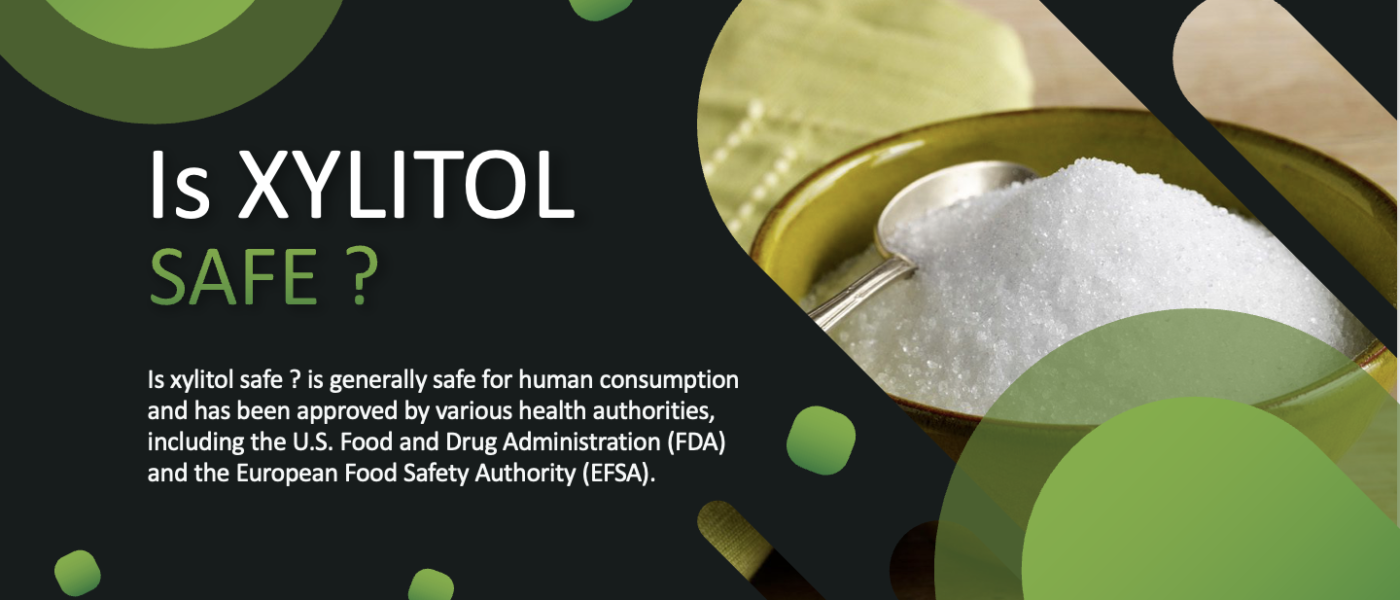Is Xylitol Safe ?
xylitol safe ? generally safe for human consumption and has been approved by various health authorities, including the U.S. Food and Drug Administration (FDA) and the European Food Safety Authority (EFSA). However, its safety can depend on the context and quantity consumed:
- For Humans:
- Moderation: When consumed in moderate amounts, xylitol is safe for most people. It is commonly found in sugar-free products like gum, mints, and dental products.
- Digestive Issues: Consuming large amounts of can lead to digestive problems such as bloating, gas, and diarrhea. This occurs because is only partially absorbed in the intestines, and the unabsorbed portion can ferment and cause gastrointestinal discomfort.
- Diabetes: is considered safe for people with diabetes because it has a minimal impact on blood sugar and insulin levels due to its low glycemic index.
- For Pets:
- Toxic to Dogs: Xylitol is highly toxic to dogs. Even small amounts can cause a rapid release of insulin, leading to severe hypoglycemia (low blood sugar), seizures, liver failure, and potentially death. It’s critical to keep products containing xylitol away from pets.
- Other Animals: While dogs are particularly susceptible, xylitol can also be harmful to other animals, so caution should be exercised with all pets.
- For Children: Xylitol is considered safe for children when used in appropriate amounts, similar to adults. Its use in dental products like toothpaste and gum can help in preventing cavities.
In summary, xylitol is safe for human consumption in moderate amounts, but it can cause digestive issues if consumed excessively. It is extremely important to keep xylitol-containing products away from pets, especially dogs, due to its toxicity.
